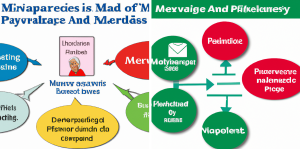
The fall is nearly here. It is time for retirees in the United States to select their renewal Medicare plan. Younger people do not pay attention. They should; their money is at stake in the decisions of their parents, grandparents, and other senior family members.
There will be a deluge of advertising on TV promoting Medicare Advantage plans. We will see happy seniors who saved money and got a bunch of freebies by calling that magic 800 number. It sounds like Christmas every day. And it is equally realistic.
Medicare is not as good as many believe it is
We often hear that Medicare for everyone would be the ideal health care policy in the United States. I doubt that, as a Medicare user and writer with a fair knowledge of health care in the United States.
Before we go to the exciting part, we need a boring introduction to that maze. Medicare is government-run health care for retirees and some younger individuals on permanent disability. As with everything bureaucrats create, it is convoluted. It started in 1965 with coverage for hospital care but within certain limits. It is a so-called Plan A. Parallel, with a small premium, one can buy Plan B covering doctor’s visits and related ambulatory procedures and testing. Presently, Plan B covers only 80% of these fees.
The limitations of Plans A and B mean that the required co-pays could be huge as soon as a need for serious care arises. Consequently, from the beginning of Medicare, private insurers have been offering supplementary insurance, Medigap, covering those high co-pays in Plans A and B. Parallel, there were attempts to integrate private insurance companies in managing Medicare. As those are optional, they are often called Choice plans; in this way, Medicare Part C came into existence. Since 2003, they have been officially called Medicare Advantage.
With the rising prices of new medications, since 2006 we have had Medicare Part D regulating rules of coinsurance for drugs. As a reader might be guessing, soon, other Medigap plans showed up exploring about half of the alphabet, up to N. Medicare is a government-run service, so all supplementary plans offered by private insurance companies need Congress’ approval. In brief, it is practically impossible for most people to figure out that tangle. Even expert insurance agents seem to follow their instincts because the more one learns about it, the more confusing it becomes. But the money part is thrilling.
In Medicare, health care providers and insurers aim to make the highest profit by satisfying all formal governmental requirements. In this scheme, patients have little say; they are pawns. A patient might benefit if a health care provider orders unneeded but permitted tests to make more money. The patient loses when the provider denies treatment that is allowed, but the provider finds it unprofitable. The patient also loses when an allowed and profitable but medically unnecessary surgery causes permanent health impairments. Removing a prostate with benign cancer is one of the often-mentioned cases.
Medicare Advantage, a good idea butchered badly
With the rising costs of Medicare, there were suggestions for introducing market forces. We can get more for less if seniors could have a say on how the money for their health care is spent. After a few decades of politicians working on it, patients lost, and the medical industry won. The privately controlled Medicare plans got a boost under the Balanced Budget Act (BBA) of 1997 and were sealed by the Medicare Prescription Drug, Improvement and Modernization Act (MMA) of 2003. The Medicare Access and CHIP Reauthorization Act of 2015 (MACRA) further strengthened them. I encourage readers to click the link in the previous sentence or read the official MACRA site. It is about money, but so intricate that it is impossible to comprehend and, as a result, prone to fraud.
In Medicare Advantage, we have accountable care organizations (ACOs), which are associations “of hospitals, healthcare providers and insurers, (…) which seeks to improve patient engagement and clinical proficiency while reducing costs.” It means that instead of signing for the alphabet of Medicare plans, a senior can sign for one of the Medicare Advantage plans, fitting that person’s anticipated needs. By law, every Medicare Advantage plan must cover the services offered by Plans A and B. Most Advantage plans include some form of Plan D. Beyond that, insurers have flexibility. Some offer additional dental insurance, free groceries, free health club membership, or transportation to medical facilities.
The concept behind that approach is noble. A private accountable care organization (ACO) gets a fixed amount of money from the government per member. The calculation is that ACOs can be more efficient than conventional Medicare. It assumes the private company can profit from the same money after providing primary care equal to the classic Medicare, additional care suited to a given group, and incentives for a healthy lifestyle.
It sounds good, so people are buying. In 2006, only 19% of Medicare users were on Medicare Advantage plans; now it is 51%.

Fraud is a way of life under Medicare Advantage
As in traditional Medicare, patients in Medicare Advantage still have no voice in how the money allocated for their health care is spent. It is between the government, health insurers, and care providers. In case of disagreements under the original Medicare, seniors needed to deal with the government and the care providers. Those on Medicare Advantage have a private health insurer added to that bureaucratic jam.
The New York Times reported: “‘The Cash Monster Was Insatiable’: How Insurers Exploited Medicare for Billions.” Insurers get more money per person if the insured population has poorer health. By exploring legal loopholes and gray areas, they “adjust” the medical records so enrollees in their plans look sicker than they are. Some got brave enough to falsify data. The other way to make money is by denying allowed care that insurers find unprofitable.
According to the NYT data, in 2020, the overpayments that Medicare Advantage operators received from the government were around $25 billion. I found a study by reputable experts claiming that in 2023, overpayments are about $75 billion, or about 20% of all Medicare payments for Advantage plans. Nobody knows for sure because getting to the bottom of that mess is almost impossible. Interestingly, the reliable Kaiser Family Foundation estimated that profit per enrollee on Medicare Advantage plans is about twice as much that on other plans.
Be it $25 billion or $75 billion yearly, it is taxpayers’ money that the government gives unduly to the small group of the rich. One can find the info supporting this statement in The New York Times and many reputable publications on the internet. They will tell you that it is defrauding taxpayers’ money. They will not tell you that your government is complicit in taking from the poor and giving it to the rich. It is the truth, but it does not sound good.
Sadly, the truth is even worse, but they also dance around it.
Death is at the end
Again, the excellent reporting by the NYT gives us the clue. Ed Stein from Denver is a typical case. He was in great health when he signed up for Medicare at 65. So, when looking for available options, he selected a lower-cost Medicare Advantage plan. Some restrictions seemed irrelevant. Not seven years later, when unexpectedly, he was diagnosed with an aggressive bladder cancer. The best doctor in town to treat his case was not in his plan’s network. Switching to a plan suitable for his sickness was not financially feasible because of the preexisting conditions. In short, to beat cancer or at least buy some extra quality time, he would need to spend a lot more of his own money than if he had a plan envisioning that option.
But how could he know? He forgot that the only way out of Medicare is via the morgue. Most of us hope that we will live healthy to an advanced age and then, one day, we will not wake up. Only very few are so lucky. Most of us will have another version of Ed Stein’s experience.
Some are worrying that only about half of retirees have significant savings. For managers of Medicare Advantage plans, it is glass half full. They target those seniors who are financially better off, which usually coincides with better health. Like Ed Stein, they plan for an enjoyable old age. They might never go to the gym but feel they could and should, so they value a free gym membership.
Middle-class seniors doing relatively well are the best enrollees in the Medicare Advantage plans. Most of them achieved modest prosperity by being frugal when spending money. Like Ed Stein, they will likely select a low-cost Medicare Advantage plan. And similarly to him, at some point, a debilitating sickness will strike them. Many of these ills may not be terminal. With proper care, they can have many more enjoyable years. Without appropriate care, they may weaken so that even a common flu can take them out. They cannot predict if they will get cancer, a stroke, or a heart attack, or will fall, breaking hip bones. So, selecting a discounted Medicare Advantage plan is like gambling at a casino; the house always wins.
Experts agree that the enrollees of Medicare Advantage plans are much healthier than the general population. As mentioned earlier, operators of Medicare Advantage plans figured out ways to overcharge the government for care provided to those relatively healthy seniors. They are scamming the government. But they do more.
Medicare Advantage is robbing baby boomers of their savings
Operators of Medicare Advantage plans know that all of their enrollees will die within the next three decades, most much earlier. Before their last day, the very few lucky ones will go through short periods of maladies and little expenses. Everyone else will get ailments that modern medicine can control at a cost. Most of the attractive plans will not be sufficient. Enrollees will need to reach into their savings to stay alive. The next generation will not inherit that wealth. Is it by accident or design that Medicare Advantage works like that?
Even worse, some seniors might run out of savings. Then, kids and grandkids will face the dilemma of whether buying extra time for mom or grandpa is worth their savings or going into debt. The wealth not inherited from baby boomers and the cash spent on their health care will impoverish the next generation. They will have less money for college education, the down payment for their first home, or starting a business.
We have an enormous transfer of wealth from the millions of middle-class seniors to the handful of the richest behind the Medicare Advantage scheme. It is a crystalline example of how the poor are getting poorer and the rich are getting richer.
Why is no one raising an alarm about the Medicare Advantage scam?
Because everyone is in on it.
Politicians and pundits often say that America has problems because of too much wealth accumulation by the very few. They often, in generic terms, blame the greed of the richest. In the case of Medicare Advantage, they are the guilty ones. The Medicare Access and CHIP Reauthorization Act of 2015 (MACRA), which boosted the Medicare Advantage expansion, passed with overwhelming bipartisan support. It got more than 90% support in the House and 92% in the Senate. One can click the links to check how politicians representing them voted.
After alarming reports about abuses at Medicare Advantage, the industry escalated the lobbying against attempted additional controls. In January 2022, it mastered a letter supporting Medicare Advantage, signed by 346 U.S. House of Representatives members. Again, I suggest readers check if their representative is on it.
Parallel with the growing popularity of Medicare Advantage, the medical-related industry has been spending more on lobbying. It was $75.83 million in 2015, growing to $126.17 million in 2022. We can safely assume that the profits from Medicare Advantage financed that increase, with the purpose to keep things as they are. So, legislators in Washington may talk about representing their constituents, but to get elected, they need that money from the lobbyists. So, whom do they represent?
Pundits do not talk about it, either. Ads promoting Medicare Advantage are good money for CNN and Fox News channels, so they criticize each other but do not expose the problems of Medicare. The Wall Street Journal is owned by the same entity as Fox News, so the issues of Medicare Advantage are not much on the agenda there. The New York Times has very informative reporting. Still, the leaders and editors there believe that government-run health care is better than market-driven one. That ideological constraint blocks their ability to draw logical conclusions from the data they collect.
With that collusion of politicians with the media, we do not have any sincere public conversation about one of the most igniting problems of our generation. Almost every family has some aggravating experience related to health care, or at least knows someone who does. But the political and media elites direct that anger toward immigrants, transgenders, abortion, woke, Ukraine, and a plethora of other less significant issues.
The Republican presidential candidates do not see that their party is complicit in the dysfunction of American health care. Medicare Advantage is one of the instances needing immediate action. But Republicans talk about God, not seeing that Americans are getting pissed off because God would not pay their medical bills.
The Democratic presidential candidates promise that the government can help the underprivileged Americans and protect them from the greed of the rich. They do not see that the more the government does, the more that lobbyists can buy. They pretend that they do not see what The New York Times reports, that in Medicare Advantage, they are complicit in robbing the poor and enriching the richest few.
Most Americans do not see that so clearly because of the collusion of the media and politicians. But they feel in their bones that something is fishy. America’s future is gloomy without addressing our health care’s dysfunctionality head-on.

 Many tell us what to think. I ask my readers to be skeptical. Question me and others.
Many tell us what to think. I ask my readers to be skeptical. Question me and others. 
